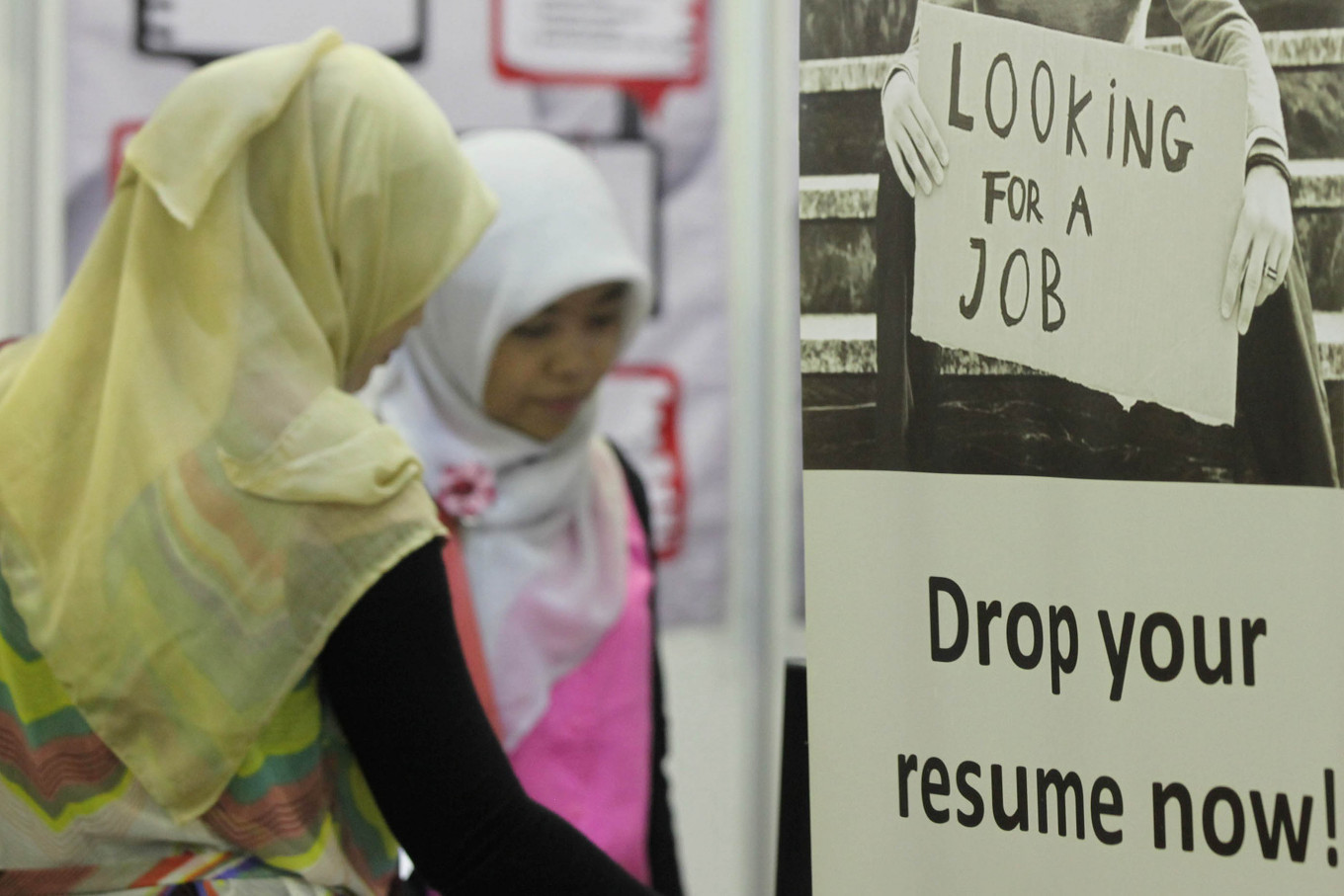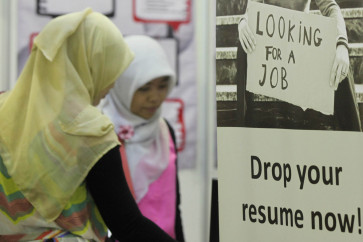Popular Reads
Top Results
Can't find what you're looking for?
View all search resultsPopular Reads
Top Results
Can't find what you're looking for?
View all search resultsDevil in the details: Can Jokowi’s pre-employment cards bridge skills gap?
It’s all top line at this point: About Rp 10.3 trillion has been budgeted for the cards that are to be disbursed to 2 million recipients, of which 1 million would specifically be for digital training and the rest for other unidentified skills. The mechanism would be similar to that of scholarships with certain eligibility requirements and application processes.
Change text size
Gift Premium Articles
to Anyone
A
s the technicalities of President Joko “Jokowi” Widodo’s fund for training jobseekers are being scrutinized by the government, critics are raising questions about the effectiveness of the cards for narrowing the country’s deeply rooted skills gap.
The devil is in the details. No details are fixed yet for the so-called “pre-employment cards” that are expected to be rolled out next year, less than four months from now. How much money will each fund recipient get? What are the qualifications? Will there be any time period for the funding?
It’s all top line at this point: About Rp 10.3 trillion has been budgeted for the cards that are to be disbursed to 2 million recipients, of which 1 million would specifically be for digital training and the rest for other unidentified skills. The mechanism would be similar to that of scholarships with certain eligibility requirements and application processes.
“It’s first-come first-served. If [the card] runs out, then it runs out,” Manpower Minister Hanif Dhakiri recently told reporters in the Presidential Palace. He added that those who have already enjoyed the program’s facilities would be unable to register for a second round. “The most important thing is for regions to identify unemployment proportions so there can be quota.”
Hanif said the cards’ recipients would be assigned to one of three categories: new graduates from formal educational institutions (skilling), employed laborers who intend to up-skill their arsenal (up-skilling) and recently laid-off individuals (re-skilling).
Cardholders would be entitled to incentives through different schemes depending on their categories upon completion of the up-skilling classes, which are expected to take two to three months. Unemployed recipients would receive incentives for three months after the classes end, Hanif added.
However, Hanif admitted he has yet to know the exact amount as the Finance Ministry “needs to count it first”. For employed individuals, Hanif said the recipients may either receive a portion of their salary or full reimbursement, depending on the Finance Ministry’s fiscal simulation in future discussions.


















